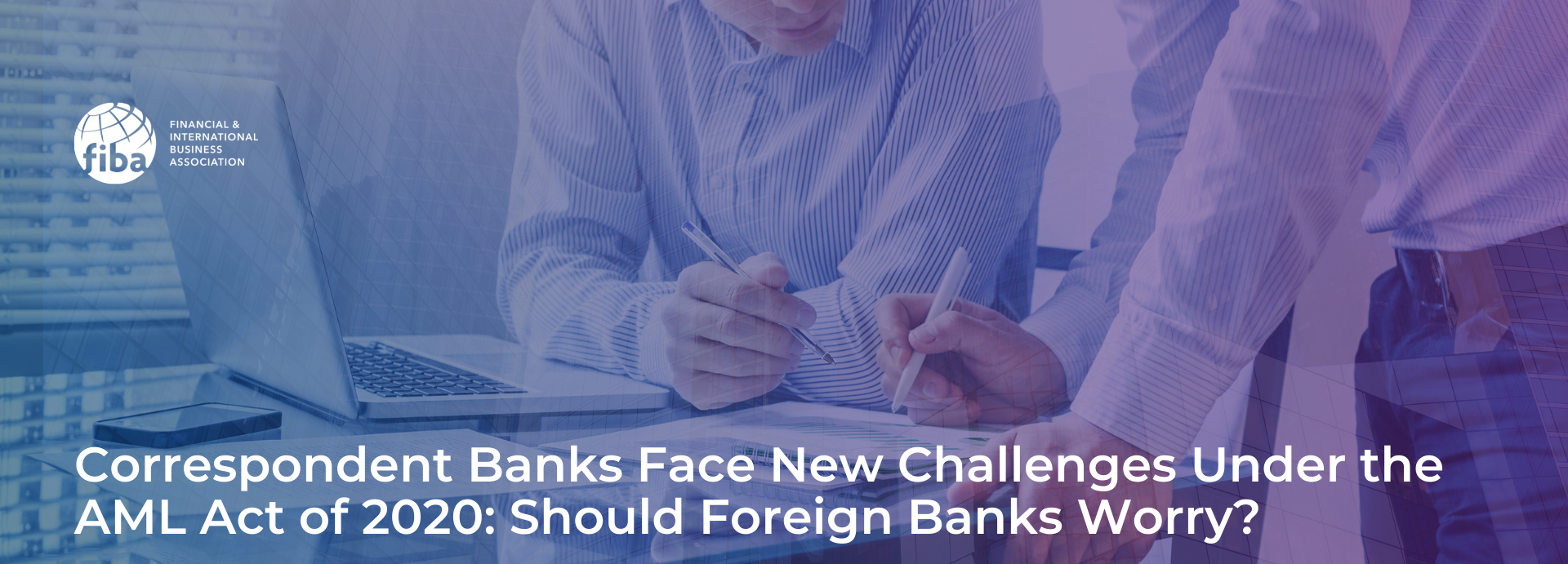Our recent webinar covered the impact regulatory changes in the Anti-Money Laundering Act of 2020 will have on domestic and foreign banks.
What is the AML Act of 2020?
In 2021, Congress enacted the Anti-Money Laundering Act (AMLA) designed to restructure the country’s current anti-money laundering laws.
The Act itself is enormous (236 pages long) and drastically changes how international banks must document transactions, verify account owners, and interact with U.S. financial institutions.
The Implications of the AML Act of 2020 on Foreign Banks
The Act itself generously expands subpoena power allowing the U.S. to issue subpoenas on a much broader basis. Unfortunately, it also exposes domestic banks to more risk. For example, a foreign bank with a correspondent banking account with a U.S. bank receives a subpoena for documentation, and they refuse to comply. In that case, the U.S. bank could potentially have liability for their customer’s actions, the foreign bank.
In terms of foreign banks, they can no longer use the “home country law” as their only defense when indicted for actions of non-compliance. The Act also includes much harsher sanctions toward these institutions.
For example, the foreign bank has seven days to comply with the subpoena request. If they fail to do so, they can be fined $50,000/day and the U.S. bank ordered to close the account. Failure to close the account in a timely manner can lead to the U.S. bank being fined $25,000/day The Department of Justice may even seize those assets.
The bottom line is U.S. banks will need to know their customer’s customers, something which examiners have been requiring for many years. The Act also revamps the SAR (suspicious activity report) filing system, and it must be in line with national priorities. International banks have unique considerations, and these new regulations may be inconsistent with their current practices. The inconsistency and cost of compliance may be problematic, especially when some policies do not apply to these foreign banks.
Historically banks have done an excellent job of managing the risk of markets and products. However, now they must follow the national priority of financial inclusion, which complicates the issue. As a result, foreign banks will have to keep a close eye on their de-risking policies going forward.
Another item to consider is the requirement of diligent notification of custody change. For example, some banks do not allow bearer share accounts. If an account changes hands, how does the bank verify that the new owner does not have a bearer share account? Again, this goes back to “know your customer’s customer.”
Foreign banks will have to dig deeper and go further to find out the source of funds and verify the identity of account owners. Although it will slow down the process, if banks knowingly get it wrong (willful blindness), the ramifications will be severe.
Should Foreign Banks Be Worried?
In a word, yes. There are many things to consider, such as complying with these new regulations while also maintaining consistency in the way you do business.
Some of the more emergent issues are going to be:
Naming conventions with wire transfers now must be aligned with a government-issued ID. Currently, there is a lot of inconsistency there, including substituting the bank’s information for the customers, making data tracking and processing complex. Foreign banks will have to tighten up this process otherwise they could see more SARs being filed and closing of accounts. The solution is training and a change of procedure that is in line with the new policies.
In other countries, a personal bank account might be used for business purposes. However, that practice creates a significant gap in policies at a U.S. bank and may end up with a possible SAR filing or account closing.
The good news is that domestic and foreign banks can work with FIBA to learn how to comply with the new regulations.
